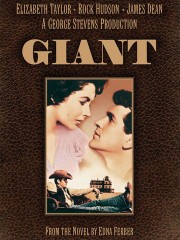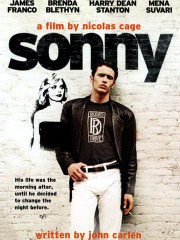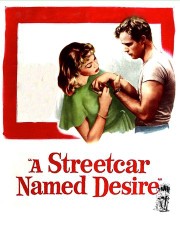Tommy Wiseau’s Five Favorite Films

(Photo by Michael Kovac/Getty Images)
If, like us, you’ve spent any time around film nerds and cult movie buffs in the past decade and a half, you’ve likely heard about a little gem known as The Room. A true independent film in almost every sense, the romantic drama was the passion project of a single man, Tommy Wiseau, who wrote, directed, financed, and starred in the film.
Aside from a number of, let’s say, unusual directorial choices, The Room also features a collection of largely inexperienced actors, perplexing green screen usage, dangling plot points, and a curious obsession with American football. It’s also a supremely earnest creation, which is part of the reason why it’s earned such a feverish following and spawned regular midnight screenings across the country.
As it happens, both James Franco and Seth Rogen count themselves among The Room‘s fans, and they recently joined forces to adapt The Disaster Artist, a memoir about the making of the film written by one of its co-stars, Greg Sestero. With the Certified Fresh The Disaster Artist expanding into wide release this week, we spoke to Wiseau about his Five Favorite Films, what it was like to see Franco’s portrayal of him on the big screen, and what the legacy of The Room means to him.
Ryan Fujitani for Rotten Tomatoes: My understanding is that the South by Southwest premiere of The Disaster Artist was the first time you saw the movie.
Tommy Wiseau: That’s correct.
RT: As you sat there and watched it, what was your initial gut response to it? What was the first thought you had?
Wiseau: I just breathe very heavily. As you know, they talked to me after the show, “Did you like it?” They don’t understand that — again, you may write this — that it’s a setback in my relationship with myself in the sense what I saw. And it shocked me because, actually, I approve 99 percent. Not just as a person named Tommy Wiseau — I approve because he did good job. I’ll be honest with you.
It was very emotional for me. You see, even now it’s very emotional, as you see in my voice. You can feel it — I don’t know if you can feel it or not. But it was emotional. It still is, because he tackled something what, as I mentioned, relate to Casablanca and others. It just too bad he didn’t go forward with some of the emotional feelings, which we tackle, especially at the end of the movie, the time when Greg says, the character, he say, I’m paraphrasing, “Everything is fine. They’re laughing because they love your movie.”
RT: Speaking of the end of the movie, I read that in the original ending, you and Greg parted ways on bad terms, but then James Franco saw that you guys were still close, so he changed the film to end on a more positive note. Is that true?
Wiseau: We never did. They did good job because we never… We always been friends, even though, as you know, he wrote the book and I support not as I supposed to support. I don’t even put the numbers now because everybody quoting me later. But it is what it is. I think Greg and me and others, we even sometimes trapped in Hollywood dilemma and situation what we feel that is right to say something stop and it’s too late to turn around.
But you can always correct, you know? I mean, as you know, I did the movie with Greg, Best F(r)iends. And also I’m working on the sitcom The Neighbors, the season two. So we’ve been very successful in past 14 years. Some of the stuff, it’s coming to my way in a sense as a director and actor. So I like it.
RT: You succeeded in making a film and continuing to work on projects completely outside the Hollywood system, and you did it all your way. With your experiences, what piece of advice would you give to aspiring filmmakers who are trying to get their own movies made?
Wiseau: I would say the same thing what one of the biggest directors said to me, and I don’t want to name the name, but it’s the biggest of the biggest. He’s still alive. Just keep going. They say keep going. And I will add something else. All negative, let them go. So don’t get involved negativeness, because film industry is very complex field, in the sense that you need a passion. If you don’t have a passion, try not to steal other projects. As you probably noticed, perfect example is The Room. You can see on YouTube and other platform, people just steal stuff from The Room, including actors.
I’m going to mention one of the scene from The Disaster Artist. One of the scene, you may watch, the time when you see it, is my character — I mean James playing me — he confront the crew, the actors, and say, “Hey, I know what you say about me.” And then, guess what? This is what exactly happened, 100 percent. And I was very frustrated, but in the beginning I was making fun of them because I say, “Haha.” You know, it’s like little kids. I say, “I got you. I know what you talk about me,” you know? And I never said this for 14 years. Can you imagine that one?
And since they released this movie, I say it now very openly, because, still today, some of my actors — I’m not mention the name — they still that negative. For example, they say, “Oh, script did not exist. This is happened by accident.” They have no clue about industry whatsoever. And so we can go on and write a book about it, all this stuff, but watch the scene. It’s very good scene.
And one other thing with another advice I can give to filmmakers that, the main thing, think positive, and also have respect for others. And that’s the thing what we all lack of in the industry. As you know, current affairs, etc. And so if you have respect for your… Because of some of the area, when you do your art, is collective work. So I myself, people don’t understand, I have assistants, four or five assistant. People say, “Well, how many assistant do you have?” I say to myself, “Hey, I can use two more.” And all this people are extremely important. In this case, Greg, because he was keep going and he didn’t badmouth me — that’s the good news — except in the book. [laughs]
But on the end, everything turned out the way I think it’s supposed to be. I don’t know what the formula is, but to be a good filmmaker [you have to] have respect for others. And have a vision, you know? Like I always say, if you don’t have a vision, you cannot be a director, as well actors.
So, basically, all this advice what I mentioned — passion, respect for others, and have vision — it make you good filmmaker. That’s my take. That’s my advice. Pretty long advice. [laughs]
RT: Thanks for your time, Tommy. Really appreciate it.
Wiseau: We’ll see you at the screening of The Room. And I want to say to all the fans of The Room, have fun with The Room. And I always say, you can laugh, you can cry, you can express yourself. Please don’t hurt each other. Thank you.
RT: Thank you, Tommy.
Wiseau: Don’t misquote me.
RT: Oh, don’t worry. We never do.
Wiseau: [laughs] I know you guys. I’m just teasing.
The Disaster Artist is Certified Fresh and expands into wide release this Friday, December 8. Read reviews for it here.












